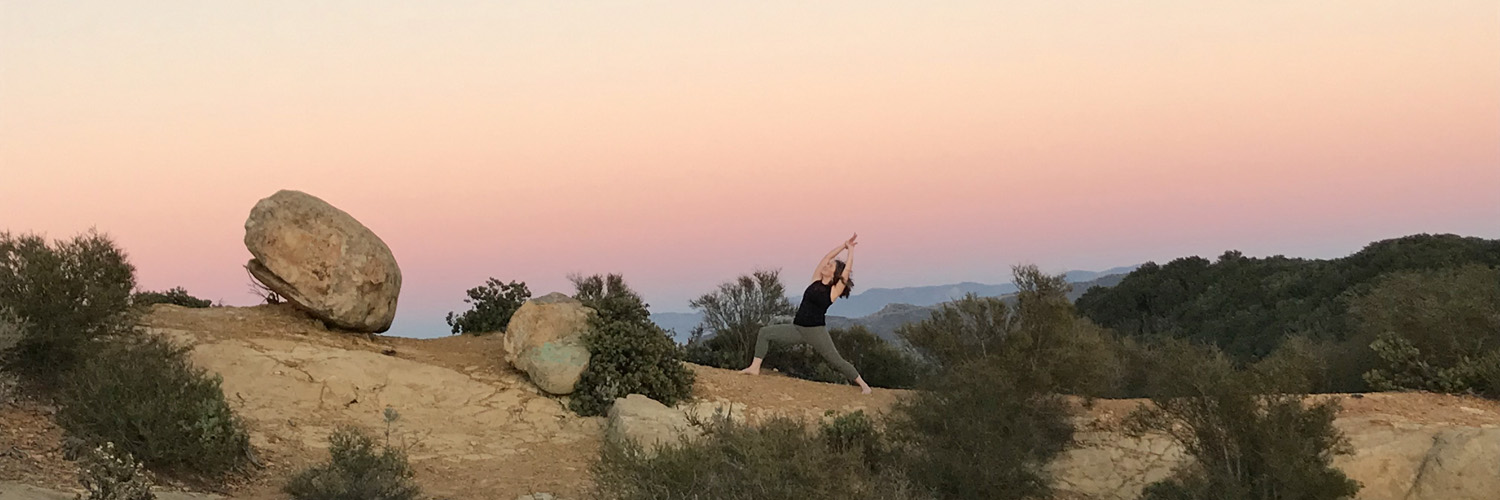Recently I’ve been drawn to the great goddesses of the Hindu pantheon. Their stories are magical and moving, exciting and inspiring, and sometimes even terrifying. My original intention was to write a blog post introducing the goddess Lakshmi, the goddess of abundance, well-being, harmony, good luck and prosperity in all forms, but she also personifies so many other characteristics worthy of discussion and embodiment. We call on Lakshmi to access the ocean of abundance that lies within, to find our radiant inner beauty, and to guide us on the path of our dharma.
As one of the Great Mother goddesses, Lakshmi guides us from the darkness to the light. She helps us move from a mindset rooted in fear and lack into a mindset of love, abundance, and generosity. The name Lakshmi comes from the Hindu word Laksya with means “aim” or “goal”. When manifesting abundance we can practice self-inquiry and take a moment to examine our intentions. Why do I want this? How would having this influence my life? How would it improve my life and how could my having it improve the lives of others? How can I use this to serve my community?
Abundance Flows to You and Through You
“Abundance flows to you and through you” has been my mantra for more or less the past year. And yes yogis, it is true, abundance flows both ways! I’ve experienced this flow (and lack of) again and again. When I found myself getting stuck in feelings of fear of not having enough or lack I could feel the Universe pulling back. But what’s even more amazing is when I drop back into the space of abundance, gratitude, and worthiness, I feel the support of the cosmos, Lakshmi, the Universe, God, whatever you want to call it. It’s as if I could do anything.
Our ability to give and receive freely depends deeply on our own personal beliefs that we are worthy of love, worthy of gifts, and that others too are worthy of these same gifts. Sally Kempton, author of Awakening Shakti, said it perfectly, “When you can allow yourself to receive with the feeling that you deserve the gifts of life, and then give with the feeling that others deserve them also, you find yourself in what one of my teachers called the auspicious state of mind, the state where shri is simply flowing through you. You feel Lakshmi’s presence as internal abundance and also as gratitude and as the desire to bless others. It’s then that you can begin to feel Lakshmi’s energy as your own.”
Lakshmi: A Tale of Generosity
One of my favorite stories of Lakshmi personifies an attitude of generosity, compassion, and empathy. As the story goes, Lakshmi and her husband Vishnu were the manifest deities at a wealthy temple for the high-caste in Varanasi, India. One year, during the festival of Diwali, Lakshmi decided to visit the town’s untouchables and bestow the untouchables with food and money. Her generosity extended to both those who worshipped her and those who did not. A beautiful reminder that we are all worthy, whether we (or others) deem us to be worthy.
Upon learning that Lakshmi has been spending time with the untouchables, Vishnu becomes angry with her. She immediately flees and goes to live with a group of sweepers. Upon Lakshmi’s arrival, the sweeper community begins to prosper, there is an abundance of food and there is enough money for the sweepers to fix-up their homes.
While the sweepers are being lifted up out of poverty Vishnu’s temple is falling into ruins, the community stops bringing offerings, and the surrounding trees begin to wither. Out of desperation, Vishnu finds Lakshmi and begs her to return. She obliges on one condition, that he may never restrict her ability to share her blessings again.
I think we all probably know a Lakshmi. We have a friend that we can count on… she lends us an ear when we need to chat, she nourishes with food and her gracious spirit, she uplifts us when we need a pep talk, she believes in the abundance of the Universe and is happy to share. She gives from a place of love and heart and soul. She gives without expectations. And yes, abundance seems to flow her way.
The Goddess of Abundance and Padma Mudra (Lotus Mudra)
The lotus is a common image in Hinduism and Buddhism and Lakshmi is often depicted either sitting or standing on a lotus flower and holding two lotus flowers in her hands. Bansi Pandit goes into even more detail about the symbolism of Lakshmi’s lotuses and explains that “since the right side of the body symbolizes activity, a lotus in the back right hand conveys the idea that one must perform all duties in the world in accordance with dharma. This leads to moksha (liberation), which is symbolized by a lotus in the back left hand of Lakshmi.”
A lotus flower begins down in the muck and mud and rises up through the water to blossom unscathed at the water’s surface. You can think of the path of the lotus as the journey to enlightenment. It is the journey from the darkness to the light.
To practice Padma Mudra, bring your hands into Anjali Mudra (prayer mudra) in front of your heart center and then separate your index fingers, middle fingers, and ring fingers. Allow the fingers to spread away from one another like a lotus flower blooming while keeping the pinkies, thumbs and wrists touching.
Did you also know that Ambuja means lotus? Learn more about the meaning of Ambuja here.
Four Lakshmi Inspired Practices to Cultivate the Art of Giving and Receiving
“Until we can receive with an open heart, we’re never really giving with an open heart. When we attach judgment to receiving help, we knowingly or unknowingly attach judgment to giving help.”
~Brene Brown
A practice in self-love.
Lie down onto your back and come into Supta Baddha Konasana (Reclined Bound Angle Pose/Reclined Butterfly Pose). To practice Supta Baddha Konasana, bend your knees and bring the soles of your feet to touch. Allow your knees to drop out to the side like the pages of a book. If you have any pain in your hips or knees support your thighs with blocks, cushions, etc.
Now bring your right hand to your belly and your left hand to your heart. Before continuing, take a moment to bring your awareness to your breath and your heartbeat and simply witness.
Your right hand is often considered the hand of action and your left hand is often considered the hand of reception. In this exercise, envision a free flow of self-love flowing through your left hand and into Anahata Chakra, your heart center. Your heart, mind, and body receive this love graciously and without judgment or expectation. Stay with this free-flowing self-love, allow it to flow into your body for ten to fifteen breaths. Then release this awareness and bring your awareness to your right hand, repeat a mantra of kind words and affirmations of self-love, gratitude, abundance, and/or worthiness. If you’re feeling stuck, perhaps try the same mantra that I have been using, “Abundance flows to me and through me” or try “I freely give and receive the gifts and blessings of Lakshmi.”
A practice in the art of giving and receiving inspired by Sally Kempton’s Awakening Shakti
Set aside thirty minutes or so to journal about your beliefs about giving and receiving.
- To begin, let’s focus on what you would like to receive. Free write a list of the blessings/gifts you would like to receive, whether they are material or spiritual. Be specific. Are other people involved? If yes, name them.
- From the above list, decide which three are the most important blessings. For each of the three blessing answer the following questions:
- How would this blessing influence your life? How would things change? How would this influence your relationships with others? How would you be able to serve others better?
- How do I intentionally or unintentionally limit my ability to receive these blessings? In what ways do I limit my potential or practice self-sabotage?
- How could I help someone else receive the same blessings that I want for myself? Write down a few actionable steps to help someone else achieve the same blessing that you want for yourself.
- Now put it into action, for yourself and for this other person.
Say yes when help is offered. Ask for help when needed.
When we accept help from someone, we gift them the opportunity to be of assistance. If we deny their offer to help, we are shutting down the energy and flow of abundance. I know I struggle with this one! I like to be in control and allowing someone else to help with a task, means that it is out of my hands, but what a gift it is!
I was reminded of this recently when I was leading a yoga teacher training weekend in Bend and we had to be out of the studio quickly, so the next group could come in. One of my gracious students offered to help sweep the floors and my first instinct was to shut it down and say “no” and “that I’ve got it” simply because I’m a people pleaser and I want to make sure that I’m not inconveniencing anyone. I quickly checked myself and my ego and accepted her offer to help. The next time someone offers to help you I encourage you to check in and say yes.
And yogis, we have got to ask for help when we need it! I’m still working on this one. I will run myself into the ground before asking for help, so maybe I’m writing this more for myself than for you. But we cannot do it all ourselves.
And plus, when we ask for help, we are gifting someone with the opportunity to lend a hand. They will feel good about helping someone in need (YOU) and you may end up with a bit of free time to take care of yourself or help someone else in need.
And finally, get your chant on. Chant to Mata Lakshmi.
Okay, I’m definitely the crazy lady chanting in the car, walking the dogs, etc. But I don’t really care.
Invoke Lakshmi with this beautiful simple chant.
Om shrim maha Lakshmyai namaha
Ohm shreem muh-hah luhk-shmyai nuh-muh-huh
Om, I offer salutations to the great goddess of good fortune.
Jai Lakshmi!
Until next time beautiful yogis!
Love and Light,
Autumn

 Ambuja Yoga
Ambuja Yoga 




